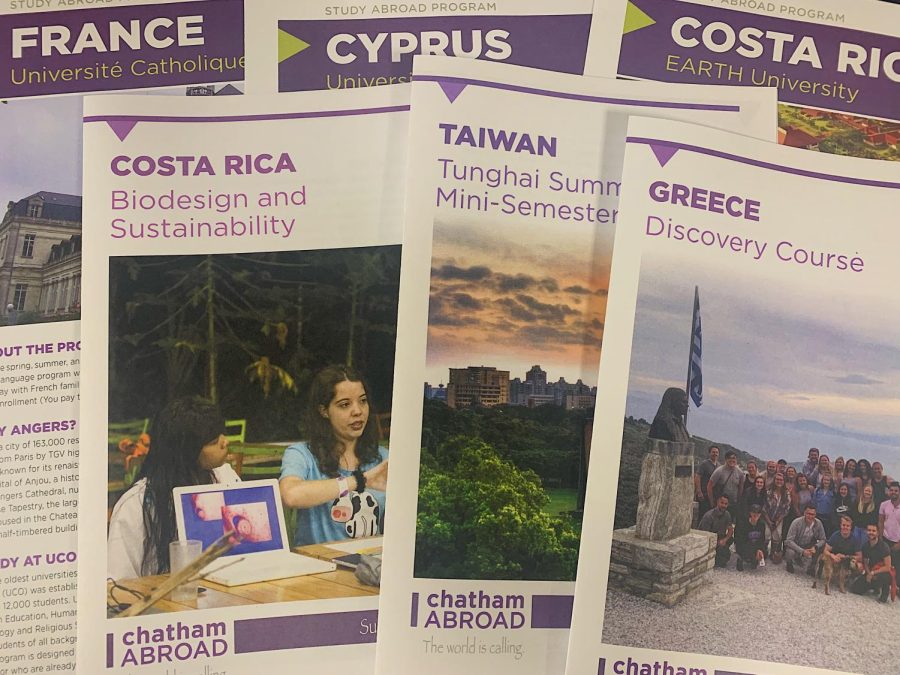Students can study abroad safely; trips conditional, full-refunds not guaranteed
Students have the option to travel abroad this summer for field experiences, all led by faculty. Photo Credit: Alyssa Bruce
October 20, 2021
Studying abroad is something many students plan in advance and eagerly anticipate. For students completing a global certificate at Chatham University, it is even required.
However, traveling during a pandemic has been met with difficulty.
The Office of International Affairs wants to ensure that students who wish to study abroad are safely able to do so.
“Changing conditions, including changes to the USDOS [U.S. Department of State] and CDC levels, have resulted in uncertainty surrounding international travel. Another challenge has been the delay in processing times for passport applications and renewals,’’ said Karin Chipman, the University’s study abroad coordinator.
This does not mean that students have to wait for trips to be approved to apply to programs.
“One change has been that Chatham has begun to conditionally approve students’ applications in the event that a location does not meet Chatham’s approval criteria,” Chipman explained.
Currently, students can only travel to areas that have a U.S. Department of State travel advisory level of one or two. All trips are conditional and dependent on whether or not the country of interest meets Chatham’s safety requirements.
“Students who are conditionally approved to travel will only be fully approved and allowed to participate in study abroad if their location meets the approval policy no later than 60 days before the program start date,” Chipman said.
This summer, the office is advertising three summer field experiences. These trips are led by faculty and last about two weeks. These trips will tentatively take place in Costa Rica, Greece and Taiwan.
Students who apply for the field experiences will submit a $500 deposit in January. They will also sign a participation agreement that acknowledges the risk of lost fees.
“In the event that a program is cancelled after students have deposited, while Chatham would make every effort to refund any fees, there are hard costs to programs that may not be recoverable such as airfare and hotel deposits,” Chipman said.
Additionally, students can use their $1,200 study abroad voucher toward virtual credit-bearing international opportunities, including courses and internships.
First-year students can also enroll in a gap year program, organized by Chatham and the Office of Admissions, which will allow them to spend a semester abroad while earning college credits. Interested students can contact the Office of Admissions for more information.
Like all traveling during the COVID-19 pandemic, the field experiences are conditionally approved, and they will only run if health safety requirements are met at the time of the trips.
Chipman advises students pursuing in-person study abroad this year to be sure to read refund and cancellation policies.
For information regarding study abroad programs this year, students should reach out to the Office of International Affairs (located on the lower level of Falk Hall), and follow its Instagram account at @Chatham_oia.






